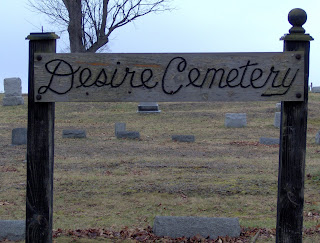

Trapped between Panic and Desire
In Northwestern Pennsylvania, while visiting family during the Christmas holidays, we came upon these two tiny towns, several miles apart. I had to stop and take a picture. I had to record the the reality of our human condition. How honestly telling of our human circumstances, that we are all seemingly on an endless journey between panic and desire, hope and fear, possibility and failure, terror and joy. We are rarely peacefully resting in the warm safe light of God's presence in our lives. We more often are plagued by the fear of loss, the ache for more, and the terror of inadequacy. We are caught, trapped, between panic and desire and rarely find a sense of calm or completion.
The psalmist, shepherd, king David reminds us "yea, though I walk through the valley of the shadow of death, I will fear no evil, for thou art with me." We all spend a great deal of our lives in the shadow of death, in dark valleys, in financial and personal turmoil, and in trying to make ends meet. Dark valleys, shadowy places. And yet, wherever we feel trapped, I am reminded that God goes with us. From ancient times until the present, we hear that God is with us in our darkest, shadowed, lifeless places. Emmanuel, God is with us, even caught between panic and desire. God is offering comfort, respite and refueling in the midst of our hardest and most perilous journeys.
May today be a moment, when we together are able to stop for a moment to look for God with us. Can you turn for a moment and see the face of God? Is there a sweet sound, a laugh, a sigh that reminds you of God's touch in your life? I find that when I let go of the panic and desire for just one moment, God's light and presence flood in. Its' been there all the time, but I was too busy, turned away, looking for answers, directions, and a way home. All the time God's presence is with us and we are home in the loving arms of a loving savior - where ever we are, no matter how trapped we might feel.


